Moving to a new state and starting a garden can sometimes be confusing. Do you want to start growing plants in Florida but don't know whether it's okay to do this year-round? Can you garden 365 days if you live in Florida?
Luckily, we've done extensive research into these questions and have the answer below!
You may certainly garden in Florida throughout the year. Since Florida is a subtropical climate, many plant species will grow perfectly fine through all four seasons (or lack thereof).
However, the "best" time to start a plant in Florida is in the fall, so that's one detail to keep in mind. Luckily, the weather doesn't usually drop below 50 degrees in most Florida cities.
As we start, we will cover all things Florida gardening and discuss when the best time to do this. Whether you're new to the region, want to start a few new plants, or have other related questions, we're here to help. With that said, let's dive right into this topic!
![Vibrant pink bougainvillea flowers in Florida Keys or Miami, green plants landscaping landscaped lining sidewalk street road, Can-You-Garden-Year-Round-In-Florida-[Yes!-Here-Are-Some-Tips-&-Tricks!]](https://gardentabs.com/wp-content/uploads/2022/10/Can-You-Garden-Year-Round-In-Florida-Yes-Here-Are-Some-Tips-Tricks.jpg)
Can You Grow Plants Year-Round In Florida?
One of the many benefits of living in Florida is the year-round climate. Because of the warmer temperatures, you can garden throughout the four seasons, ultimately growing plants 365 days.
Of course, that's not to say it never gets chilly in Florida, but this won't usually be enough to shock or kill your plants. Therefore, you can safely garden throughout the state in the fall and winter.
According to experts, however, you may want to start new plants closer to the fall, as this is the best time of year for them to develop their roots and acclimate to their new location.
Whether you want to grow vegetables, fruit, or flowers, Florida will make for a perfect growing climate. Even if the temperatures drop to freezing, you can always cover your crops/plants with a thermal sheet, so there's always a way around this.
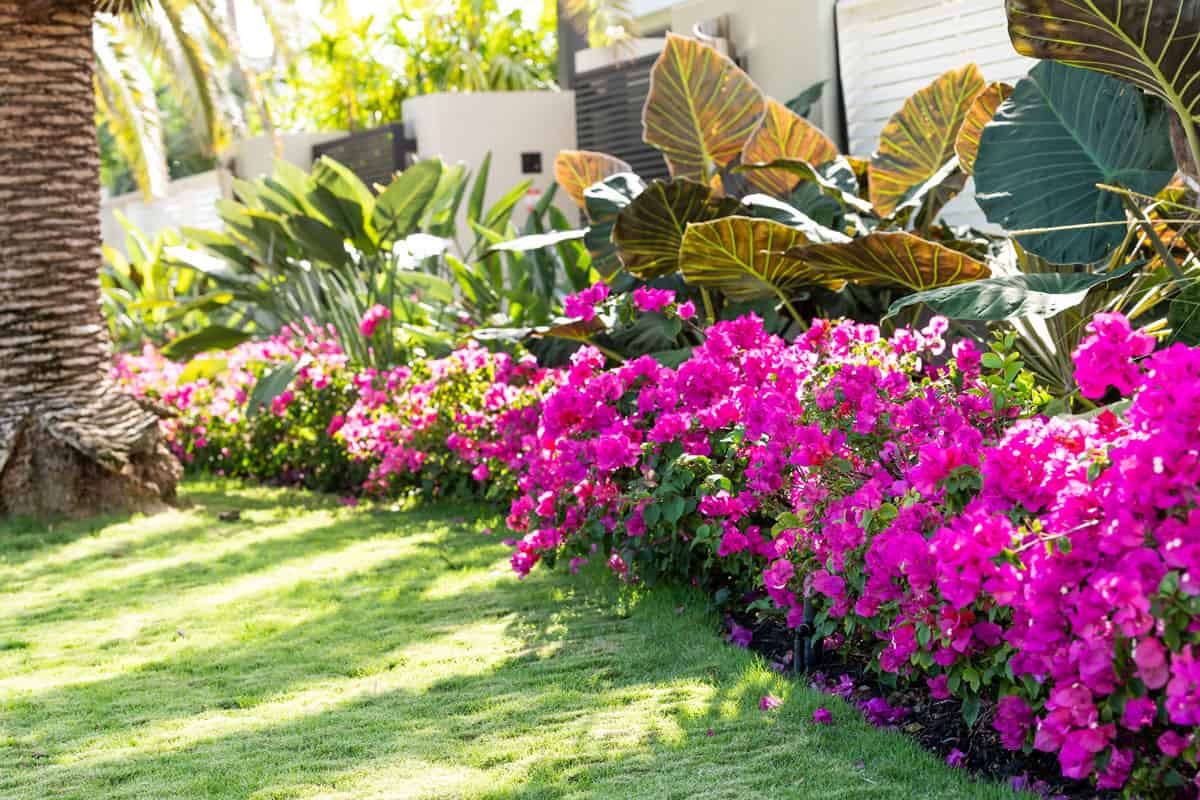
Do Plants Go Dormant In Florida?
Yes. Even though Florida doesn't have snow or harsh winter weather, some of your plants may still have a dormant period. Especially if the temperatures drop to 50 or 60 degrees for longer timeframes, it's possible to see your flowers, trees, and shrubs slow down.
Of course, this is entirely natural, so there's no reason to worry. Luckily, if your plants go dormant, they won't be this way for too long, as spring weather typically rolls in around March.
Furthermore, if a cold spell comes and goes relatively fast, your plants may not even be affected! So again, Florida can be the perfect state for gardeners who don't want to give everything up once the first frost happens.
According to Canterbury Farms, many Florida-grown trees have dormancy periods towards the later fall and wintertime, so that's something to look out for.
Tips For Growing Plants Year-Round In Florida
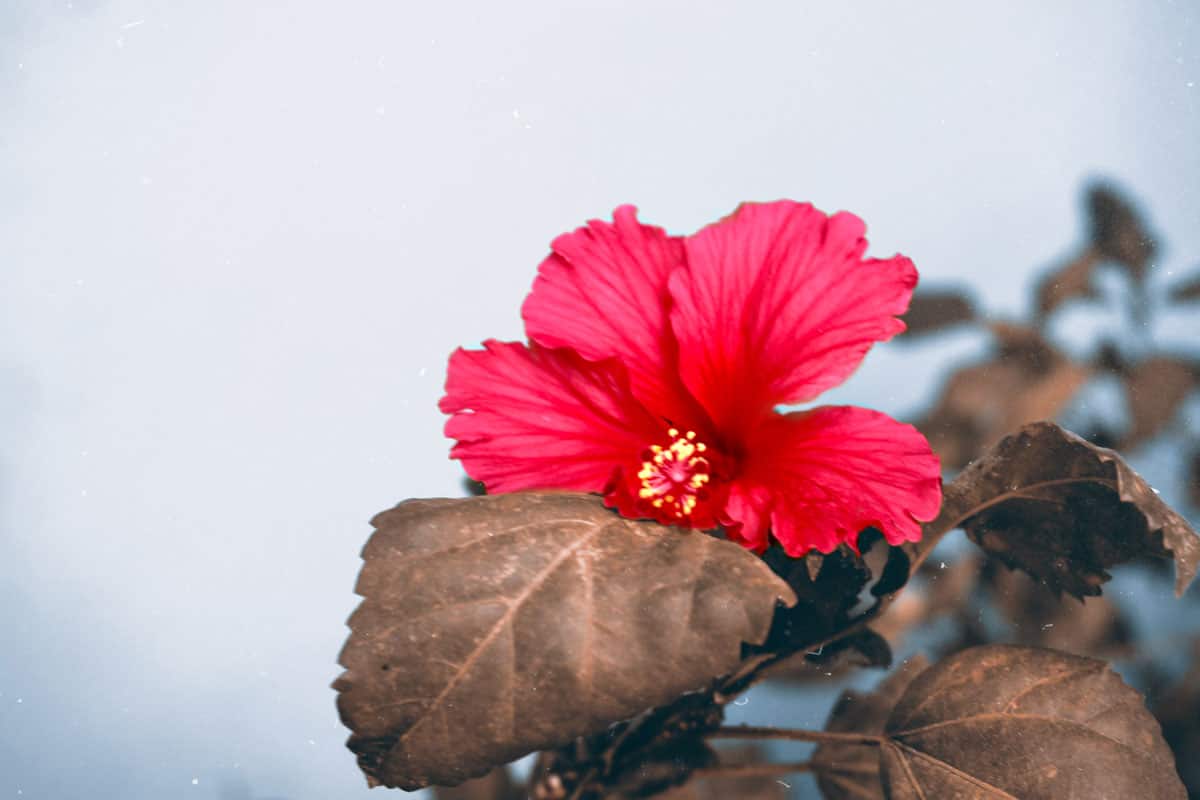
For those wanting to try year-round gardening in Florida, there are many ways to accomplish this. Generally, giving your plants time to settle before the colder winter weather is a good start.
For example, if you want to plant something, try and do this by September or October so your new plant has time to develop its roots and acclimate.
If you do this, your plant should continue to grow (a bit slower) through the winter. Additionally, it can be helpful to mulch around the base of your plants every year before winter, as this will keep the ground protected and warm near your vegetation.
Additionally, it can be helpful to use tarps or thermal cloths for your plants when the weather gets colder than usual in Florida. Protecting your plants is easy to keep them alive year-round and doesn't require much extra effort.
Valibe Plant Covers With Freeze Protection
These plant covers prevent your vegetation from freezing, are made of sturdy Polypropylene material, measure 10x30 feet, are breathable, work for all plant types, and come in a few different sizes.
Follow this link to see it on Amazon.
How Cold Does The Weather Get In Florida?
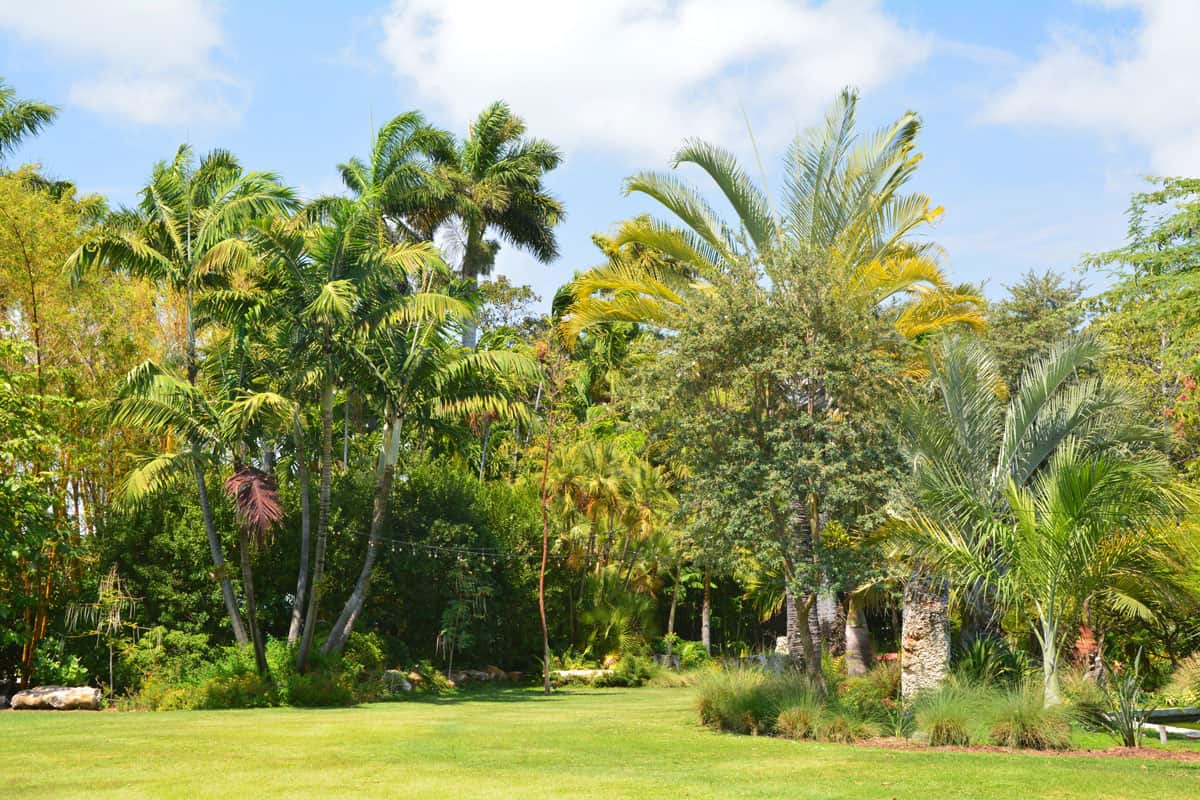
If you aren't sure how cold it gets during a Florida winter, this depends on where you are. For example, in Key West, the average winter lows are around 65 degrees Fahrenheit, while people in Tallahassee may see winter weather closer to 41 degrees.
Furthermore, Miami residents have extremely mild winters, with medium temperatures of around 77 degrees throughout the season. So, think of South/Southwest Florida being the warmest.
Generally, the higher up you are in Florida, or the more central your garden, the colder the winters will be. Again, Florida has some of the most moderate winter weather in the United States, so regardless, you won't be wearing a parka.
It's also not too familiar for a severe cold snap to hit any Florida city, so your plants should be fine outdoors all year.
Do Plants Do Well In Florida?
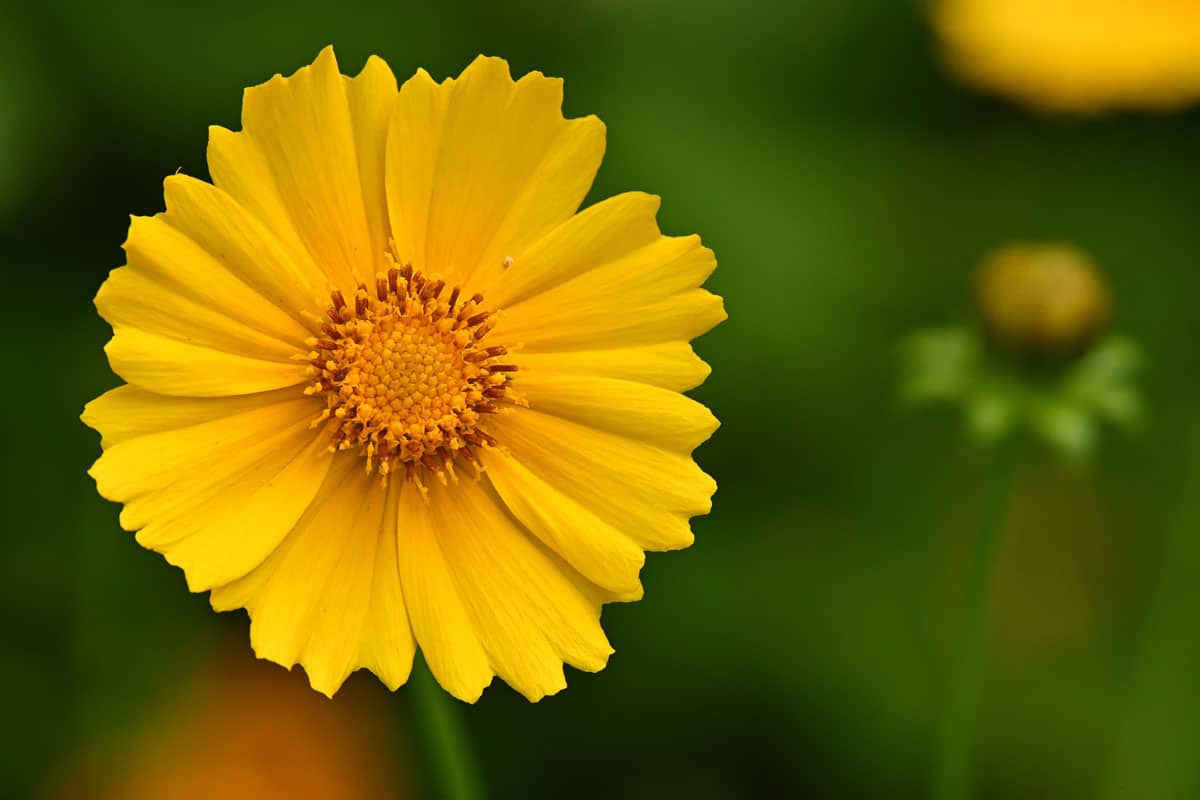
Yes! Many tropical plant species thrive in Florida and tend to grow all year. As we said, this state has some of the mildest winters in the nation, making it perfect for year-round gardening.
You can find all types of native and non-native plants growing throughout Florida, including majestic trees, vines, and one-of-a-kind flowers.
Again, you don't always have super fast-growing plants in the winter in Florida, but you should see yours continue to grow. In contrast, you also want to ensure the species you put in your garden like more tropical growing conditions.
A few plants we recommend growing in Florida year-round include:
- Firebush
- Beautyberry
- Muhly grass
- Coral honeysuckle
- Passion-flower
- Yuccas
- Crepe myrtle
- Juniper
- Magnolias
- Lantana
- Palms
Of course, these are just a few of the endless plants that will thrive in Florida conditions throughout the year. Generally, if the plant you want to grow has a tropical climate preference, it will do well in Florida.
Can You Grow Vegetables In Florida During The Winter?
Yes! Like many plants, you can also successfully grow veggies in Florida through the winter.
Generally, you want to choose crops like arugula, beets, broccoli, cabbage, carrots, cauliflower, kale, lettuce, spinach, and turnips, as these prefer the year-round conditions Florida offers.
Of course, Florida is an agriculture hub, so you should have success regardless of what you plant. Some vegetables handle cold spells better than others, so that is one detail to consider.
As we said, it's not uncommon for Florida winters to reach 50 degrees or lower (central cities mainly), so remember that when planting your crops.
In addition, you can always try to grow your vegetables inside during winter or have them in a greenhouse throughout the year to provide a more stable climate.
Lettuce is one crop that can handle cold and warm weather, so that's a good crop to start with.
Can You Grow Fruit In Florida During The Winter?
Yes! Like the vegetables you can grow year-round, fruits also respond well to Florida climates.
The fruits you want to plant in Florida during winter are avocadoes, starfruits, oranges, grapefruits, tangerines, persimmons, and even strawberries.
When we think of Florida, citrus is the first thing that comes to mind. One of the best fruits to grow in Florida (even during winter) is citrus, so that could be a fun project.
As we said for veggies, you might also want to consider keeping your fruits in a greenhouse during the winters if you're more toward central/northern Florida.
Again, this isn't always necessary, but it can provide a more stable year-round temperature for your crops.
How Much Sun Should My Plants Get In Florida?
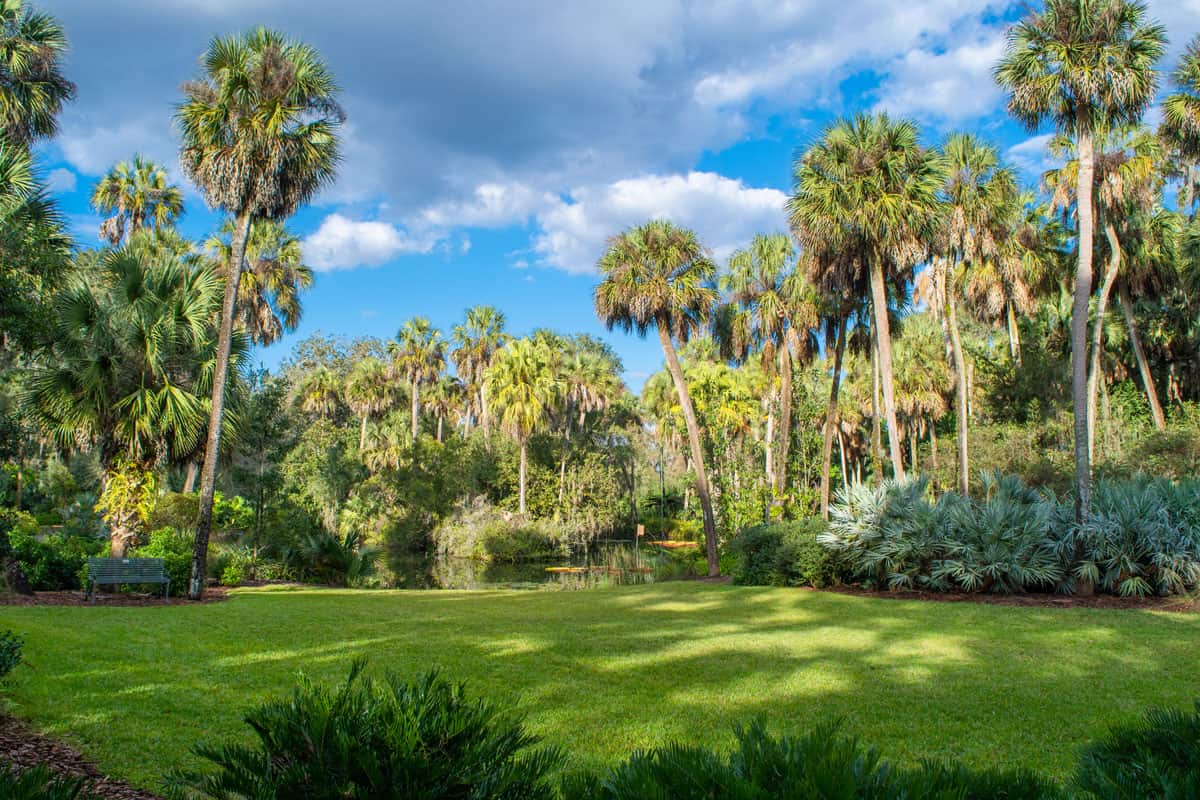
For plants growing in Florida, we recommend planting them somewhere with 4-6 hours of direct sun exposure each day. Since the sun tends to be powerful throughout Florida, your plants don't always need as much direct contact.
Therefore, dappled shade for your plants can become helpful in the summers, when the temperatures can easily rise above 90 degrees. However, you don't want to give your plants too much shade.
Especially if you want to continue growing things through the fall and winter, having adequate sunlight throughout the morning and afternoon is essential in the colder months.
So, try to find a healthy balance: not too much direct sun but enough to aid your plant's growth.
According to South Florida Plant Guide, most species that prefer full sun can thrive in the partial sun if they're in Florida. This especially applies to flowers, as too much heat can cause them to burn.
How Often Should I Water Plants In Florida?
Although there isn't one specific answer here, you want to try and water Florida-growing plants every four or so days. Depending on the weather, you might need to water every other day or vice versa.
According to the University of Florida, you can let your plants go without water for short periods, although it's never a good idea to put them under "severe water stress."
They also mention how ensuring the top half-inch or inch of soil is moist during warmer periods, so that's something to remember. When this amount of ground becomes dry, it's time for water.
To Wrap Things Up
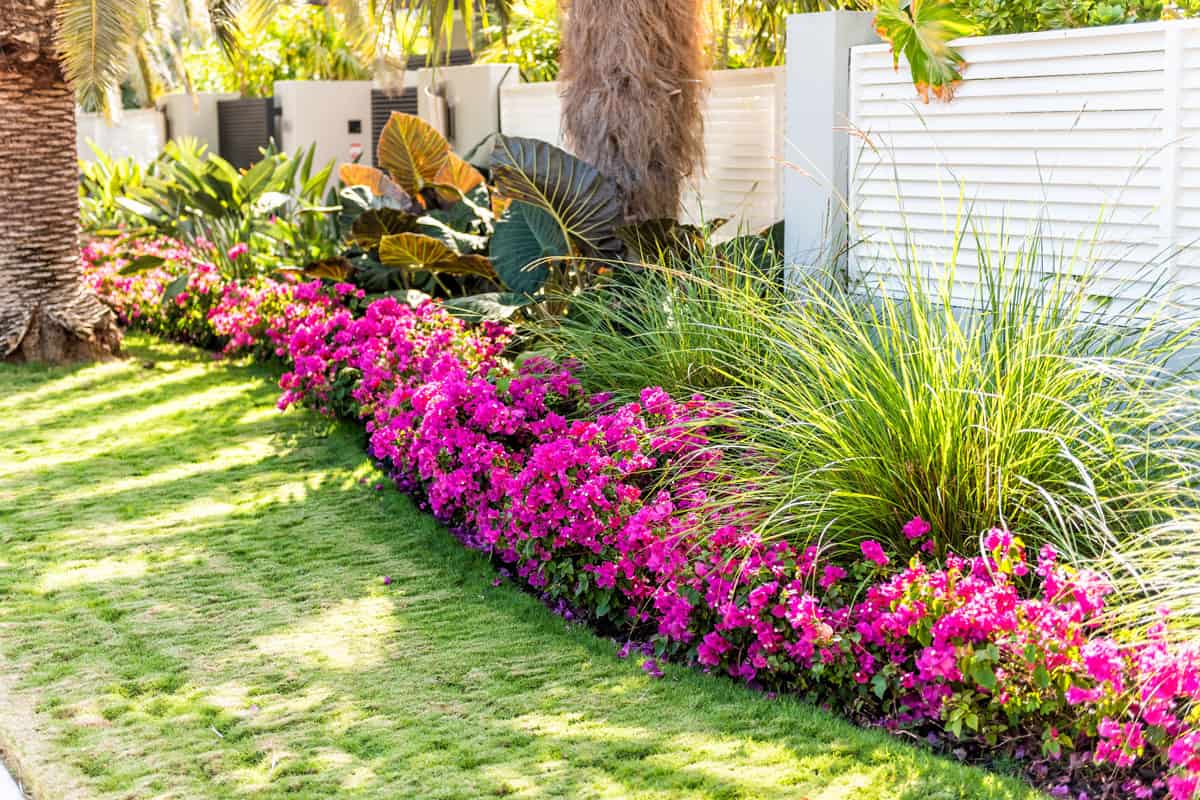
Whether you have lived in Florida for a while or are a new resident, it's always good to understand your garden. We found that you can plant and grow things in Florida throughout the year, as it never gets super cold in most cities/regions.
In addition, you can grow vegetables, fruit, and even flowers throughout the four seasons in a Florida garden. Again, it's possible to see some trees and plants enter dormancy if the temperatures drop below 50 or 60 degrees, so don't be alarmed if this happens.
Remember to give your Florida plants enough sun and water, and don't be afraid to cover them with a thermal sheet during cold snaps!
Made it to the end? Check out these helpful garden articles below:
When To Trim Gardenias In Florida? [Can You Do This All Year?]

